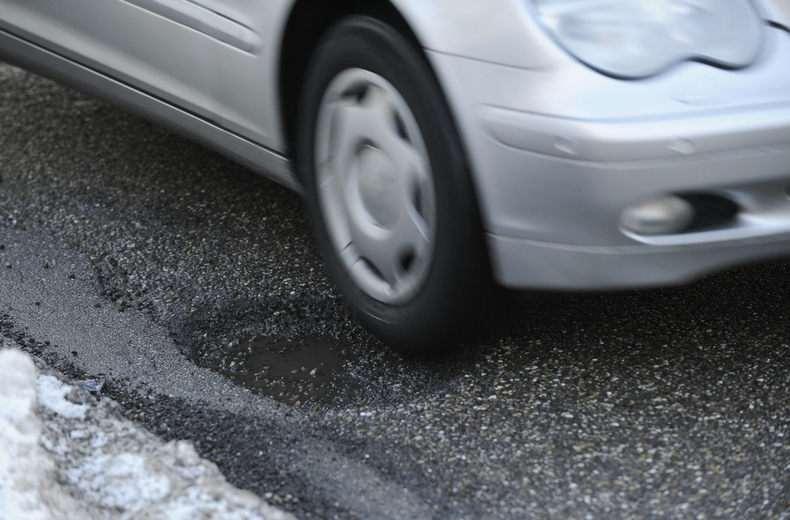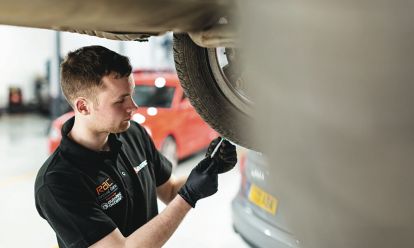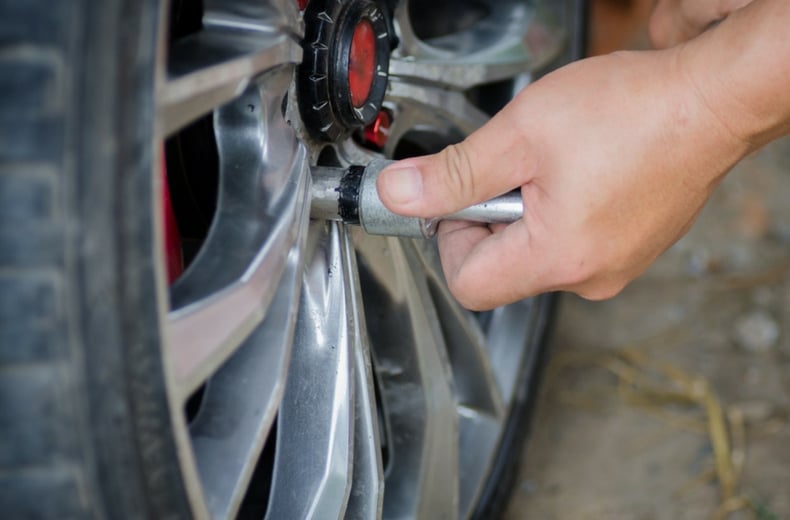The MOT is a simple test of roadworthiness, and is not to be confused with a vehicle health check.
Simply put, an MOT will determine whether your car is safe to drive on the road, it will not reveal any lurking vehicle health issues, such as problems with the engine, that could cause a vehicle breakdown in the future.
To help you pass your MOT and ensure your vehicle remains roadworthy, we've taken data from the Driver and Vehicle Standards Authority (the DVSA – the body that oversees the MOT), to reveal what the most common MOT failures are - most are more simple than you might think.
We have also provided our own advice on how you can potentially avoid these common failures with simple checks.
READ MORE: Clutch repair
1. Lighting and signalling (18.9%)
Nearly a fifth of all cars which fail their MOT do so because of an issue with their lights.
Often, this will be as simple as a blown bulb. Switch all your lights on and walk around your car to check they’re in working order.
Do the indicators flash as they should? Do the sidelights and fog lights function as they should? Don’t forget the number plate lights.
It’s also worth checking the condition of the lights.
Often plastic lenses get misty over time, so it might be worth buying a kit to clean your lights ahead of the MOT.
Look out for any cracks in your lights, too, and ask someone to stand behind the vehicle to check the brake lights light up as you press the brake pedal.
2. Suspension (13%)

With data showing the RAC attended over 7,900 breakdowns caused as a result of potholes in the first quarter of 2024, it’s no surprise that more than one in 10 MOT failures are caused by suspension issues.
These can be hidden fairly well, so you can be forgiven for missing a leaky shock absorber or even a snapped spring.
Pay attention to noises made by your car during everyday driving – particularly during cornering or when passing over bumpy roads.
Are there any unusual ‘clunks’?
Park your car up and spend a few seconds looking at it – does it sit level?
Is it too high, or too low, particularly in one corner?
Walk around the car and try pushing down on each corner.
Does it return back to its normal level when you let go without ‘bouncing’ up and down a few times?
Service, repair or MOT?
You can trust the RAC with our local approved garages and NEW mobile mechanics.


3. Brakes (10%)

We don’t need to explain how important your brakes are, however one in 10 cars fail their MOT due to issues with the braking system.
That’s a worrying amount – especially as most faults will be fairly obvious.
Listen out for squealing or grinding noises from your brakes, both are signs that the pads are running low.
When braking, does it stop in a straight line or does it pull to one side?
You should also inspect the discs and pads – you might need to remove the wheel to do this (here's a short video on how to do this), or you might be able to look through the spokes.
Is the surface of the brake disc smooth? How thick are the brake pads?
Many cars fail because of issues with their handbrake, too.
Stop your car on a hill and apply the handbrake. Does it hold the car? If not, it might need adjustment.
4. Tyres (7.7%)
A car can have all the safety systems in the world, but if the four bits of rubber connecting it to the road aren’t up to scratch, you could have a disaster on your hands.
You should check your tyres regularly, not just at MOT time – yet they count for the fourth most popular failure rate for the annual test.
Check out RAC Tyres.
Use a 20p coin to check the tread.
The law states that tyres need 1.6mm of tread across the central three quarters.
Insert a 20p coin – if you can see the outer band, the tread is too low and you could be fined up to £2,500 and hit with three penalty points per tyre.
Don’t just rely on the tread you can see… feel inside the tyre – uneven wear could be indicative of issues with alignment or poor inflation.
While you’re checking the tyres, look out for any lumps or cuts – both of which could cause a dangerous blowout and should be fixed immediately.
You should also check the correct tyres are fitted to your car.
Are they matching sizes across each axle?
Do they have a suitable speed rating?
Find out when your MOT is due with our free MOT checker. Simply enter your vehicle's registration to check its MOT expiry date and view its test history.
5. Issues affecting the driver’s view of the road (7.2%)
Seeing the road clearly is vital for safe driving yet an alarming 7.2% of MOT failures are a result of issues affecting the driver’s view of the road.
This could include things blocking the windscreen (such as aftermarket sat-navs, dashcams or air fresheners), or cracks and chips within the driver’s eyeline.
READ MORE: How to deal with damaged windscreens & windscreen repair
It even includes whether the bonnet can be closed securely – is there a danger your bonnet could pop open and block the driver’s view?
Finally, check the wipers – do they work as they should? It’s worth topping up your windscreen washer fluid before the test, too.
Although these are the main reasons that a vehicle fails its MOT in the UK, there are many more elements which get examined. Check out our full MOT checklist and guide for a definitive list before you get booked in at a reliable garage. If you need any car repairs, you can even call out a mobile mechanic to do the work right there on your driveway.
Here's a recap of all the quick checks you should be making ahead of your test.
If your MOT is due or if you would like to book your vehicle in for a full car service, you can book online with your local RAC Approved Garage today.

RAC sale – up to 33% off*
• Roadside cover from £5.49 a month†
• We get to most breakdowns in 60 mins or less
• Our patrols fix 4/5 breakdowns on the spot











